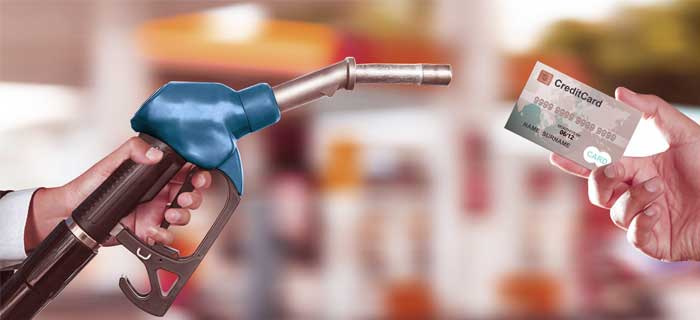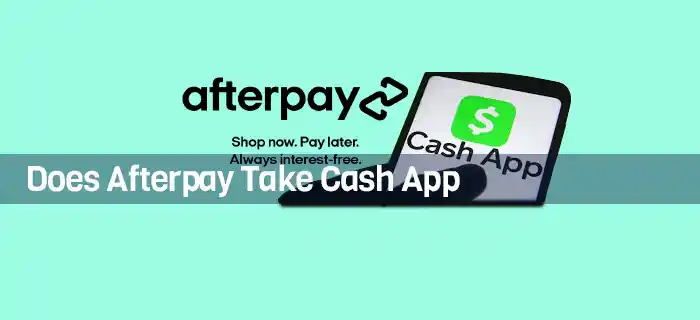Most instant money loan options provide small amount of funding for you day to day purchases but start up loans for business makes more sense.
When you are looking for financing for a new venture. Luckily, you have a lot of options to choose from!
What Will We Talk About Here?
1. Personal loans, asset-based financing and business grants are some of the best ways to gather funds for your start-up business.
2. A stable credit history and well-drawn business plan are important requirements for qualifying for a start up business loan.
3. The application process would vary depending on which loan you are choosing.
…and Much More!
Top 7 Start Up Business Loans To Consider
As an entrepreneur, one of the most challenging task is to find the funding for your new business. Majority of the lenders do not offer reasonable loans to people with low or less than average FICO score.
Start up loans, however, give chance to applicants who don’t even have a credit history and aim to finance newer businesses.
- People who take loan need to pay back with a certain interest rate over a pre-decided length of time.
If you are new in the market and are having trouble deciding which startup business loan you should go for, here is a quick comparison to ease things out for you!
| Startup Business Loan | Advantages | Disadvantages |
| Personal Loans | Just requires good credit score Fixed interest rate Fixed repayment period | Interest rates maybe high Scores low funding |
| Asset-Based Financing | Easier and quicker to obtain Include fewer covenants Lower interest rates | Risk of losing an asset |
| Business Credit Cards | Special promotional offers Flexible for of funding | High interest rates Low credit limits |
| SBA Microloans | High approval rates Lower loan fees | Strict qualifying terms Pre-payment penalties |
| Business Grants | Help grant credibility Many reliable options Do not need to be repaid | Difficult to obtain Come with restrictions Uncertain renewal of terms |
| Crowdfunding | Quick to raise money Easy to track progress Good form of marketing | Copyright issues May not reach target amount Needs significant resources |
| Friends and Family | Flexible terms Probably no interest | Can mess relationships Limited legal protection |
Personal Loans
Personal loans are not specifically meant for businesses but you can always use them for this purpose.
Banks, credit unions, and similar financial institutions provide personal loans depending on your credit score, income, history, etc.
Needless to say, those applying with a strong financial background have better chances of reaching an approval on easier terms.
- Good credit score can guarantee low interest rate and allow you to borrow larger amounts.
- Start ups generally need less than $5000 to begin which can easily be supplemented via personal loan.
- The loan is available on fixed or variable interest rate depending on which one you find more suitable.
- Less than average credit score may still get you the loan but on high APR (up to 36%!)
- Timely payment of the loan would not help you improve credit score.
You might be interested in reading: Discover personal loan.
Asset-Based Financing
As the name already suggests, this type of financing needs collateral which can be in any form as long as its of the comparable value.
- You can avail the term on flexible terms depending on the tangible collateral that you are putting forward.
- Typically, invoice and equipment financing are more famous.
- Invoice financing can help you loan up to 85% of the total value.
- With equipment financing, you can get 100% of the value and pay it back over time, much like a traditional loan scheme.
- Interest rates and additional charges are almost always applicable.
SBA Microloan Program
SBA Microloan programs work by lending money to non-profit community lenders and financial institutions that then provide funding to small business owners.
Although, SBA flagship loans are difficult to qualify for since they focus on established business, microlenders are of huge help. They aim to back up small organizations such as those set by minorities or businesses run by women.
- You can qualify with an average credit score and relatively new business set-up.
- SBA Microloan program can help you fund your business with up to $50,000 amount.
- Typically, such loans carry interests rates between 8% and 13%.
- Loan terms are pretty solid that can give your business the boost it needs to grow down the road.
- The loans are available to businesses running in disadvantaged areas.
Credit Cards
Business credit cards are another reliable way to finance your purchases and expenditure for a fresh venture. However, APRs and penalty fees apply so you may see a credit card quickly turning into a debt if you are not careful enough.
- The application process is quite easy and straightforward.
- The exact APR depends on the credit score and your eligibility performance.
- There are business credit cards that offer $0 introductory APR grace period.
- You need to pay off the balance timely each month or your credit score would definitely take a dip.
- It is advisable for small business to explore alternative financing options before considering applying for a business credit card.
Crowdfunding
Crowdfunding serves a dual purpose: It helps to gather funds for the business and provides insight to the entrepreneurs about the validity of the product in the market.
- Kickstarter, Indiegogo, Patreon, and GoFundMe are some famous platforms for crowdfunding.
- Currently, different types of crowdfunding such as reward-based or equity crowdfunding are trending.
- It does not require a credit check or scrutinizing credit history.
- You need to specify a target amount before the campaign begins as well as campaign features that would encourage donors.
- The approach is famous for innovative ideas in the market that could catch the attention of large number of people.
Business Grants
Grants are not type of typical loans especially because they don’t need to be repaid. Government agencies as well as private firms offer grants to small business although they can be quite difficult to qualify for.
- State and local government agencies offer grants as well.
- It is better to apply for specific grants. For example, those meant for veterans, women, or minority might carry different terms for qualification.
- Grants are a tough bet but “no pay-back” is worth the effort.
- Applications are competitive so you would need a good business plan to get the support.
- The chances of getting turned down are quite high.
Loans From Friends and Family
When you are looking for financing with a poor credit score, qualifying for personal loan or help via credit cards can be troublesome.
In this case, your best bet might be cashing some funds from friends or close relatives who are willing to put their trust in you.
- Loans of this sort mostly do not come with an interest rate.
- The two parties can sit together and decide on favorable terms that suits them.
- However, you need to consider that any losses in the businesses can result in personal consequences as well.
- It is advisable to seek loan only from friends and family members you are comfortable with.
- It always helps to draw up a written contract instead of leaving it on wordily commitment.
Extra Reading
Start Up Loans – Do You Really Need It?
Even with the perfect business idea to pitch, it is a challenge for beginners to gather funds they need to implement and market the plan.
The situation is even worse for those deal with a poor credit score. No cash, no business, right?
- Start up loans for businesses provide funding for such ventures and help you manage the finances that you need.
Nonetheless, failure to pay back on time can lead you to bankruptcy and damage your score further.
How To Qualify For Start Up Loan For Your Small Business
Getting the right amount of funds to kickstart your business can be difficult especially if your don’t have a strong credit history to back you up with lenders.
Although there are other ways to improve your chances of qualifying for a small business start up loan, you need to begin by improving your spending behavior to boost credit score fast.
- Remember to pay the bills on time and never exceed recommended credit utilization on your credit cards i.e. 30%.
Other than that, detailed and neatly-drawn business plan can also help you score good business loan. Moreover, you can explore options other than the ones we have discussed above. Begin by looking into online lenders or community banks!
Attention! Some suggest going for “secured” loan until your business is established. However, putting assets online can be risky and should be used as a last resort only.
Applying For Business Start Up Loans
The application process would vary depending on which loan you are choosing. In either case, you have to show certain documents, your credit history, a stable income source, and the business plan.
- Applying for SBA microloans
These typically require you to fill out an application with personal information. Furthermore, you would be asked to attach certain documentations like account statements, EIN, personal credit score, and the business plan.
- Applying for asset-based financing
For asset-based financing you might need to submit additional documents besides the ones mentioned above. These can include invoices for purchase of major equipment, etc.
- Applying for business credit cards
Credit card applications are rather easy and would not take much of your time. Moreover, you would need to submit selective documents only such as the social security number, etc.
- Applying for business personal loan
Personal loans are difficult to qualify for. Lenders would need complete information regarding your personal financing, sources of income, credit history, pending payments, etc.
- Applying for a business grant
Instead of focusing on the personal data, qualifying for grants would require you to present a drafted statement and business plan. You might also have to give a visual presentation to a committee that would decide to reject or accept the proposal.
- Getting a loan from friends or family
If you are getting funded by friends or relatives, then you may not need to submit any application. However, it is best to draft a written, mutual agreement to avoid confusion later on.
The Bottom Line
Financing of a new business through start up loans is common as there are multiple options available for applicants to make use of.
- The type of funding that you choose would depends on how much you need and what kind of credit history you have.
Qualification can be a problem if you are applying with a staggering credit score, pending debts, or bankruptcy. You can improve your chances by writing an impressive business plan.
Frequently Asked Questions About Start Up Loans For Business
How can I get a loan to start my business?
If you are an owner of a new, small business, the best bet is to apply for a personal loan offered by online lenders or reliable banks. However, you would need to show a good and stable source of income.
Is SBA loan good to start up your business?
Yes! Start Ups are in need of microloans that SBA can provide on easier times, average credit and relatively less time in the market. SBA microloan programs are currently financing 30% of small businesses in the US.
Do banks lend money to start up businesses?
Banks, credit unions, and other financial institutes offer applicants loans to start their business. However, the terms such as interest rate and pay-back time varies from one bank to another. It might also be different considering whether you are applying with a poor or excellent credit score.
How can I start a business with no funds?
It is best to either ask friends or family for financial help or wait until you have enough savings to start a business. You can also apply for a small business loan, a business grant, or go for more risky asset-based financing.

Jamie Johnson is very enthusiastic Kansas City – based freelance writer, and her core expertise are finance and insurance. She has been endorsed on several personal finance, insurance & business website to share her thoughts. Her publications can be found on famous sites like Bankrate, The Balance, Business Insider, Chamber of Commerce and many others.
From many years, she served more than 10,000 hours of research and writing to more than 2000 articles related to personal finance, credit building, mortgages, and personal and student loans.







